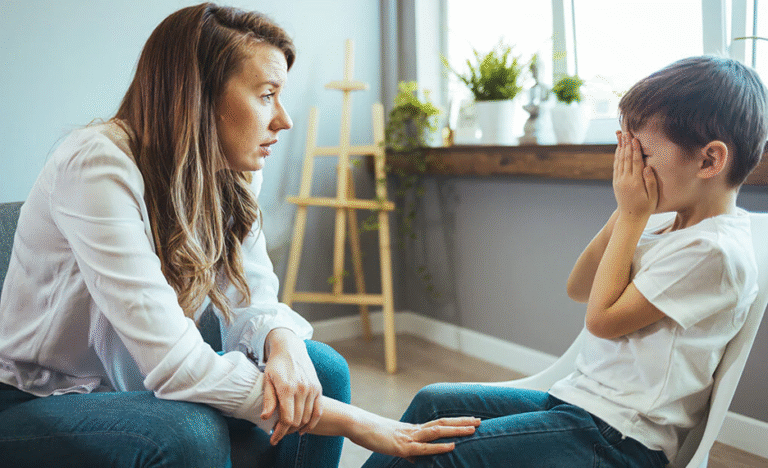Why Consequences Are a Key Part of Learning
When it comes to raising responsible kids, one of the most effective strategies is allowing them to experience the natural and logical consequences of their actions. This doesn’t mean being harsh or punishing for the sake of control—it means letting reality teach the lesson. For example, if a child forgets their homework, the natural consequence may be a lower grade. If they don’t take care of a toy, the toy may break and not be replaced. These real-life experiences build responsibility in ways that lectures alone rarely do. Interestingly, many adults ask questions like “is Freedom Debt Relief legit” because they, too, are dealing with the consequences of past financial choices. Just as adults face outcomes tied to their decisions, children benefit from learning early how actions connect to results.
The Difference Between Natural and Logical Consequences
To use consequences as a teaching tool, it helps to understand the difference between natural and logical consequences. Natural consequences happen automatically, without parental involvement. A child who refuses to wear a coat might feel cold outside. Logical consequences, on the other hand, are designed by the parent but directly related to the child’s behavior. For example, if a child leaves their bike out in the rain, a logical consequence could be losing bike privileges for a day. Both types are effective when applied with consistency and calmness, and both teach children that choices carry outcomes.
Why Shielding Kids From Consequences Backfires
It’s natural to want to protect children from discomfort or disappointment. Parents sometimes step in to fix problems or smooth things over, thinking they’re helping. But in reality, shielding kids from consequences can actually prevent them from learning responsibility. When children don’t face the outcomes of their behavior, they may assume someone else will always clean up their messes. Over time, this can create a pattern of entitlement or lack of accountability. Allowing kids to experience manageable consequences when they’re young sets them up to handle bigger responsibilities as they grow.
Creating a Safe Space for Learning
Using consequences to teach responsibility works best when children feel safe and supported. It’s not about shaming them or making them feel unloved. The key is to communicate that mistakes are part of learning and that the goal isn’t perfection—it’s growth. When children know that their parents still love and support them, even when mistakes happen, they are more open to accepting the lessons consequences bring. Framing consequences as opportunities for growth rather than punishments makes all the difference in how children respond.
Consistency Builds Trust and Accountability
One of the challenges parents face is staying consistent with consequences. It’s tempting to let things slide one day and then overreact the next. However, inconsistency can confuse children and weaken the connection between their choices and outcomes. By calmly and consistently following through with consequences, parents create a predictable environment where children know what to expect. This consistency builds trust, reinforces accountability, and helps kids internalize the idea that responsibility is non-negotiable.
Encouraging Problem-Solving and Reflection
Consequences become even more powerful when paired with opportunities for reflection and problem-solving. After a child experiences a consequence, take time to talk it through. Ask questions like, “What happened?” “What could you do differently next time?” and “What did you learn from this?” These conversations encourage kids to connect the dots between their actions and the results. They also help children develop critical thinking and decision-making skills they can apply throughout life.
Balancing Consequences with Encouragement
While consequences are important, they should be balanced with encouragement and recognition of positive behavior. If a child takes responsibility for their actions, owns up to a mistake, or makes a better choice the next time, acknowledge it. Reinforcing these moments helps children feel proud of their growth and motivates them to continue making responsible choices. The balance of accountability and encouragement creates a healthy environment for development.
Lessons That Last Into Adulthood
The beauty of teaching responsibility through consequences is that it prepares children for adulthood. Life is full of outcomes connected to choices—both positive and negative. From managing money and maintaining relationships to keeping a job, the ability to recognize cause and effect is essential. When kids learn early that actions have consequences, they are more likely to grow into adults who take responsibility for their lives rather than blaming others or avoiding accountability.
Practical Ways to Apply Consequences at Home
Here are some simple, everyday ways parents can use consequences to teach responsibility:
- If a child forgets to do their chores, they might lose screen time until it’s complete.
- If they spend their allowance quickly, they won’t have money for something later in the week.
- If they’re careless with a borrowed item, they may lose the privilege of borrowing in the future.
These examples show children that their choices directly affect their experiences, reinforcing the principle of responsibility in a way they can understand.
Conclusion: Turning Consequences Into Life Lessons
Teaching responsibility through consequences is not about punishment—it’s about equipping children with the tools to navigate life successfully. By allowing kids to experience the natural results of their actions, staying consistent, and pairing consequences with reflection and encouragement, parents can foster accountability and independence. These lessons prepare children not only for school or chores but for the bigger challenges and decisions they’ll face as adults. Ultimately, consequences become a bridge between today’s choices and tomorrow’s growth, creating a foundation for a responsible and resilient life.


0 Comments